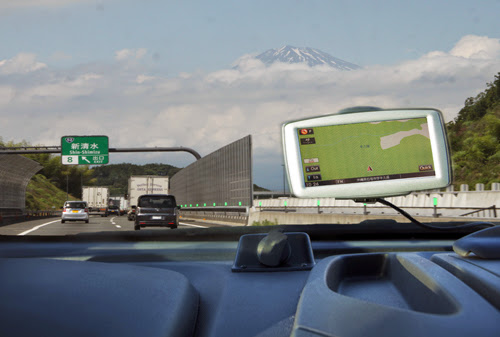I RECENTLY embraced the ultimate navigation challenge of a road trip in Japan. Technology helped, with several kinds giving bilingual conflicting instructions all at once. The numerous traffic jams gave us time to contemplate the route ahead.
Since returning home my dreams have been dominated by indecipherable road signs, unpronounceable place names and a panicked uncertainty about where I am.

Navigation is all about finding your way by the best and safest route possible — making adjustments when you go off course and swift, decisive action to avoid damaging diversions. It’s not a bad metaphor for a lot of things in life.
In MJA InSight’s lead news story this week, the chair of the Medical Board of Australia, Dr Joanna Flynn, describes the challenge for the board of “navigating the tensions between protecting public safety and maintaining the intrinsic professionalism of medical practitioners”.
A recent report on the UK’s General Medical Council (GMC) questions whether the medical regulator is steering a steady course through this difficult terrain, with reports of “a culture of fear” among UK doctors because of escalating numbers of complaints, public hearings and deregistrations.
Using the GMC’s own language, the report’s authors, from the independent think tank Civitas, seem to ask if the GMC itself is “fit to practise”. The Australian Health Practitioner Regulation Agency is about to undergo a scheduled review which might well canvass similar issues to those raised in the UK.
The idea behind “rapid response systems” in hospitals is to navigate away from the potential disaster of a cardiac arrest before it happens, by detecting and responding to patients with deteriorating vital signs. Our second news story reports on a study published online by the MJA, which found that the rates of inhospital cardiac arrests and cardiac deaths have halved between 2002 and 2009, as the uptake of rapid response systems has increased.
Hospital care at the end of life is one of the most difficult areas of clinical practice to navigate. Despite their poor prognosis, frail elderly patients who have a cardiac arrest generally receive cardiopulmonary resuscitation (CPR) unless there is a documented order to the contrary.
For our third news story we asked experts to comment on a novel idea raised in a “For debate” paper published online by the MJA. The authors suggest that, rather than the current “opt-out” system for receiving emergency CPR, patients be asked at admission if they would care to opt-in.
Medicines Australia, the peak body of the pharmaceutical industry, is self-regulating and therefore authorised to navigate its own way through the surreal landscape of its relationships with health care professionals, including the transparency of monetary transactions. In a comment this week, Dr Ken Harvey questions again whether a voluntary code is getting us anywhere, as the latest edition of Medicines Australia’s Code of Conduct awaits public comment and authorisation by Australian Competition and Consumer Commission.
Coroners in every Australian jurisdiction are empowered to make recommendations on matters of public health and safety. In cases of preventable death, a coroner investigates where things went “off-course”, and families often gain comfort from the thought that the resulting recommendations might avert another tragedy. In her column this week, Jane McCredie looks at whether coroners’ recommendations are used in the way they are intended and how we can ensure that they are.
As we navigate through life, one of the major challenges is plotting a career path. This used to be pretty simple for doctors but the world and the workforce have changed. A comment from two registrars suggests that this is not such a bad thing, and might inspire you to consider diversifying your “portfolio” of non-clinical skills.
You could even consider putting in some time as a medical editor. The work is interesting, you can do it from almost anywhere in the world and there are plenty of people who’ll be happy to set you straight should you fail the navigation challenge and wander off the beaten track.
Dr Ruth Armstrong is the medical editor of MJA InSight. Find her on Twitter: @DrRuthInSight

 more_vert
more_vert